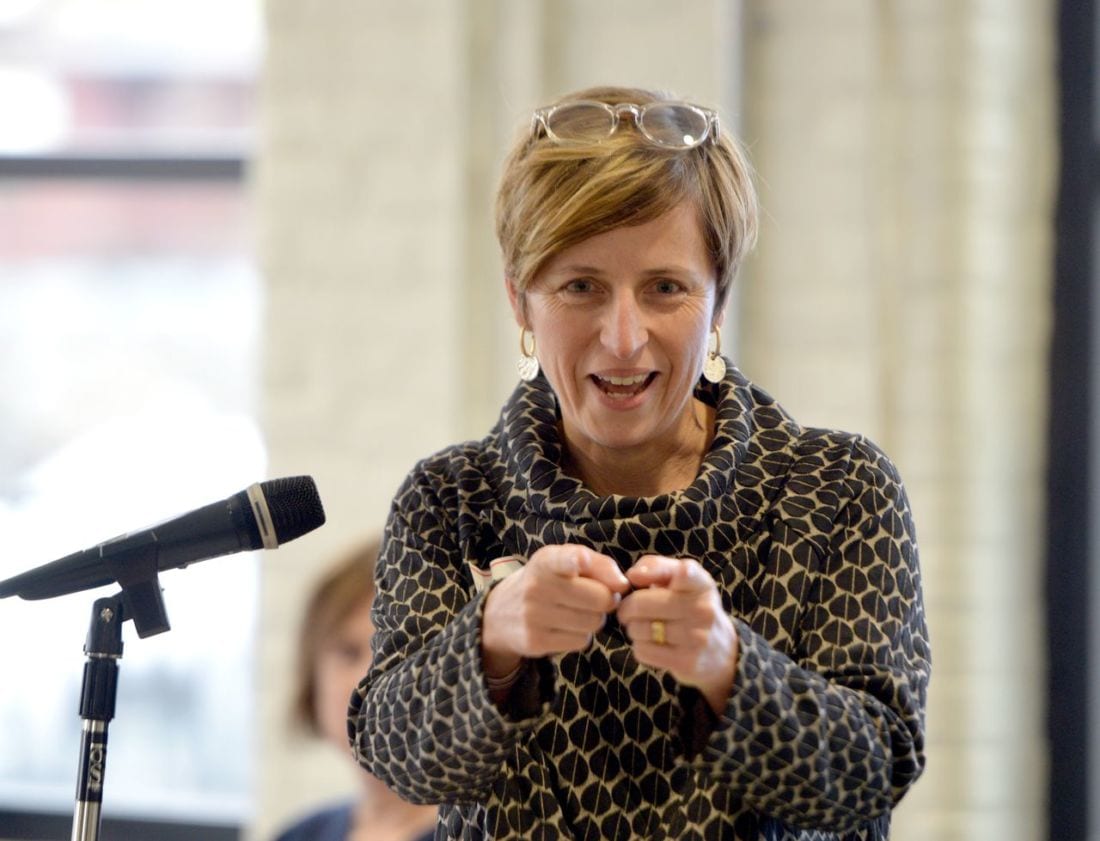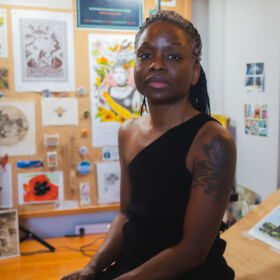February 23, 2021 Blog
Pandemic offers Community Foundation of Western Massachusetts a look in mirror of awareness
This op-ed by Katie Allan Zobel was originally published in the Republican on February 14, 2021.

Amidst the cascading agonies of 2020 and early 2021, the past 11 months have offered up critical learning opportunities. For me, and for the Community Foundation of Western Massachusetts, those came during a few steely-eyed looks in the mirror.
We stayed focused, and, instead of looking away, we are now committed to shining a light on the cracks and flaws so we can learn and adjust. Since our launch 30 years ago, the community foundation has been about creating and sustaining a long-term charitable resource for Hampden, Hampshire and Franklin counties. It’s why we were founded – to advance the greater good, locally. What we are learning from the crucible of this year is that dollars alone are not enough.
If we envision a thriving region where every resident can realize their full potential, liberated from barriers to opportunity, then we must strive in all we do to advance equity and collaboration. Community foundations like ours have a unique responsibility and ability to help create fully inclusive, flourishing communities – through powerful listening, research, partnership, along with the thoughtful, informed distribution of philanthropic dollars.
The Community Foundation of Western Massachusetts is recognizing that, in our work helping donors give and support students and nonprofits, we have also reinforced inequities in our community. We pride ourselves on being a community-driven grantmaker, so we are asking ourselves:
- Who is missing from the decision-making?
- Do we fully understand the needs?
- Are our grants and scholarships having impact?
- Are we sharing our learning with our fundholder so they, too, can create equitable solutions?
Our answers to these questions are anemic. They simply are not good enough, and we can and must do better. We are starting with ourselves, assessing our work and discovering what needs to change and what needs to be amplified to increase equity.
Recruiting more diverse volunteers and staff is a step we have taken. Representation and inclusion matters. These new voices and perspectives are enriching our work.
Listening to nonprofits that serve the region and understanding the needs of the people they serve is also critical. Data can tell us a lot, and we also want to hear directly from residents, so we are exploring more ways to make grant decisions together.
We are also examining how we can better share knowledge and enhance giving skills among all our communities.
We are taking action and learning from doing. During our emergency response to the COVID-19 crisis, we had to move quickly so we reduced barriers, streamlined processes, and simplified reporting. We also knew which communities are disproportionately affected by disasters, so we were laser-focused on support for traditionally marginalized communities. It’s clear to us that no one knows how to be more effective than the nonprofits and the residents of our region, and as a result, we awarded grants without restrictions.
We are not alone. Reflection and change are underway nationally. In fact, many large foundations in the eastern part of the state are recognizing there is deep philanthropic inequity in our commonwealth and are now looking to address that imbalance.
According to Philanthropy Massachusetts’ “Massachusetts Giving Report,” donations to Massachusetts nonprofits totaled $4.7 billion in 2017. Yet, per capita, Hampden County received less than $100, compared to Suffolk County’s $1,900 per capita. Hampshire County received $350. When you combine that with the fact that the three towns with the highest poverty rates in the commonwealth are Amherst (33%), Springfield and Holyoke (both 29%), the imbalance is even more grim.
When COVID-19 hit, the philanthropic community responded in a new way. Spurred by First Lady Lauren Baker, donors, most from eastern Massachusetts, gave more than $32 million to the Massachusetts COVID-19 Relief Fund. The vast majority of those dollars then were distributed outside of the Greater Boston area, where there are fewer sources of funding.
The Community Foundation of Western Massachusetts received $4.4 million from the fund, along with additional gifts from the eastern part of the state. In all, we have received $5.9 million from outside of our three counties, half of the $11.7 million we’ve leveraged for COVID grantmaking to date.
In 2021, the community foundation will continue to examine our work, listen to our communities and move from awareness to action. We are committed to fueling and sharing the power of philanthropy so, together, we can create truly inclusive communities across our region.
None of us has all the answers, so let’s work together to remove the barriers and create systems that advance equity so our whole region can thrive.
Katie Allan Zobel is the president and CEO of the Community Foundation of Western Massachusetts, which serves Franklin, Hampden, and Hampshire counties.

